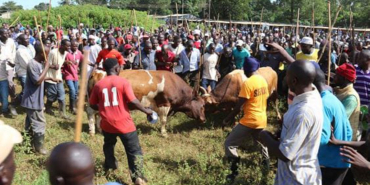Freemason: History, Beliefs, and Influence in Kenya

The Nairobi County Government on Wednesday executed a forceful enforcement action against the Grand Lodge of East Africa's Freemasons' Hall, sealing off the premises due to outstanding land rates totalling Ksh.19 million.
The closure is part of a sweeping initiative by the county to compel property owners to settle long-overdue statutory payments, as officials pledge a more aggressive approach to revenue recovery. The county's action, while primarily a measure to enforce financial compliance, has inadvertently stirred a renewed public discourse regarding the nature of Freemasonry, an organisation long characterised by secrecy and subject to varying degrees of public curiosity, suspicion, and controversy.
Although many in Kenya view Freemasonry as a fraternity focused on personal development and philanthropic endeavours, its secretive practices have also made it a focal point for numerous conspiracy theories. The enforcement operation was spearheaded by Nairobi Health CEC Suzanne Silantoi, along with other key county officials. According to Silantoi, the Freemasons' Hall had consistently disregarded demand notices and public warnings concerning the unpaid dues, leaving the county with no alternative but to proceed with enforcement.
"This particular premises owes Nairobi County over Ksh.19 million in land rate arrears," Silantoi stated firmly. "We have exhausted all legal avenues, issuing notices and publishing warnings, yet these obligations remain unfulfilled."
The county has indicated that additional measures, including the disconnection of essential services such as water and sewer lines, may be implemented to ensure compliance. Chief Officer for Housing Lydia Mathia emphasises that property owners are legally obligated to settle their debts, and failure to do so will result in the disruption of county services. The financial impact of widespread defaulting is substantial. Out of 256,000 registered land parcels, only 50,000 are current on their payments.
Nairobi County estimates that it could recover up to Ksh.10 billion through comprehensive enforcement actions. Receiver of Revenue Tiras Njoroge stresses that property owners had been given ample time to meet their obligations, but further non-compliance will now result in stricter penalties.
"This is a matter of accountability," Njoroge affirmed. "Those who have failed to demonstrate good faith will face legal consequences."
Beyond the immediate financial dispute, the enforcement action has reopened a complex public discussion about Freemasonry, an institution historically cloaked in secrecy and speculation. The Grand Lodge of East Africa, which oversees operations across Kenya, Uganda, Tanzania, and Seychelles, functions as the central organisational body for local Freemasons. It guides members through moral philosophy, structured rituals, and charitable endeavours.
Freemasonry officially states that it is neither a religion nor a substitute for religious practice. Membership requires a belief in a Supreme Being, but the organisation explicitly prohibits discussions of faith during its meetings. Nonetheless, scepticism persists, particularly in communities where secrecy is often associated with clandestine or improper activities. Some Kenyans embrace Freemasonry as a fraternal society dedicated to self-improvement and philanthropy, while others question its underlying motives.
In a recent local radio discussion, a Kenyan citizen expressed concern about misinformation surrounding the organisation. "I feel like we have been misinformed about Freemasonry—just like we have been misinformed about nutrition, medicine, religion, and governance. The things we were told were bad often turn out not to be."
While the fraternity actively supports various charitable causes, including hospitals, schools, and care services for the elderly, it continues to be shadowed by conspiracy theories that link it to ritualistic practices and clandestine global influence. Freemasonry is one of the world's oldest secular fraternal societies, originating in Scotland and subsequently spreading globally.
The organisation emphasises the values of brotherly love, relief, and truth, guiding members through a hierarchical system of membership. In Africa, Freemasonry has a significant presence, with lodges operating under various Grand Lodges, including those in South Africa and Zanzibar. Despite its documented charitable contributions, the mystery surrounding its activities continues to fuel speculation.
The Freemasons' Hall in Nairobi, historically known for hosting discreet yet elaborate gatherings, has long been a subject of public intrigue. Its closure, stemming from financial reasons, has only deepened curiosity about the activities conducted within its walls.








Add new comment